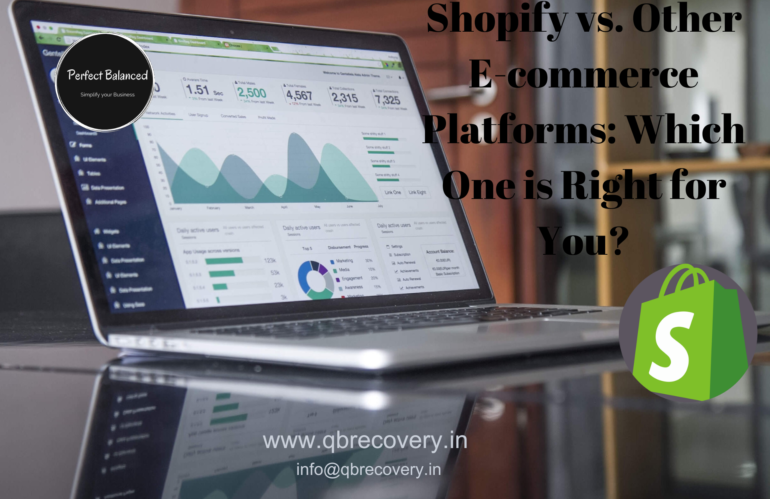Introduction:
When it comes to choosing an e-commerce platform for your online business, there are numerous options available. Among the popular choices, Shopify stands out as a leading platform that empowers entrepreneurs to create and manage their online stores. However, it’s essential to consider the unique features, capabilities, and suitability of other e-commerce platforms as well. In this article, we will compare Shopify with other e-commerce platforms to help you determine which one is the right fit for your business. To explore Shopify and get started today, click here.
- Ease of Use:
Shopify is renowned for its user-friendly interface, making it accessible to beginners and experienced users alike. With its intuitive dashboard and drag-and-drop functionality, you can easily set up your online store without any coding knowledge. Other platforms, such as WooCommerce and Magento, may require more technical expertise and customization.
- Design and Customization:
Shopify offers a wide selection of professionally designed themes that allow for easy customization. You can choose from various themes, modify layouts, and customize colors and fonts to match your brand. WooCommerce provides design flexibility through its integration with WordPress, while Magento offers robust customization options but may require more technical skills.
- Scalability and Performance:
As your business grows, scalability becomes a critical factor. Shopify is designed to handle high traffic and provides reliable performance. It offers hosting services, ensuring your store remains stable and secure. WooCommerce, being a WordPress plugin, can scale but may require additional optimization and hosting resources. Magento is highly scalable but is more suitable for larger enterprises with complex needs.
- App Integrations:
Shopify boasts an extensive App Store with numerous integrations to enhance your store’s functionality. You can find apps for marketing, inventory management, analytics, and more. WooCommerce benefits from the vast WordPress plugin library, offering a wide range of integrations. Magento, being an enterprise-level platform, provides robust integrations but may require custom development.
- Payment Options:
Shopify supports a variety of payment gateways, including its own Shopify Payments, PayPal, Stripe, and more. The platform handles transactions seamlessly, ensuring a smooth checkout process for your customers. WooCommerce and Magento also offer multiple payment options, but they may require additional setup and configuration.
- Support and Resources:
Shopify provides 24/7 customer support via live chat, email, and phone. Their extensive documentation, forums, and community make it easy to find answers and guidance. WooCommerce offers community support, while Magento offers support through its Magento Community Edition and Enterprise Edition.
- Pricing:
Shopify offers different pricing plans, allowing you to choose the one that suits your budget and business needs. The plans include hosting and security features, simplifying your overall cost management. WooCommerce is free, but you’ll need to consider expenses such as hosting, themes, and plugins. Magento’s pricing structure is more complex and generally suits larger businesses with higher budgets.
- SEO and Marketing:
Shopify provides built-in SEO features, including customizable meta tags, URL structures, and sitemaps. It also offers marketing tools like discount codes, gift cards, and integration with social media platforms. WooCommerce benefits from WordPress’s SEO capabilities, and Magento offers robust SEO features but may require more technical expertise.
Conclusion:
Choosing the right e-commerce platform is crucial for the success of your online business. Shopify, with its user-friendly interface, design options, scalability, app integrations, and support, is an excellent choice for businesses of all sizes. However, it’s important to consider your specific requirements and compare them with other platforms like WooCommerce and Magento. Take into account factors such as ease of use, design customization, scalability, app integrations, payment options, support
